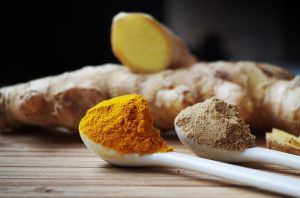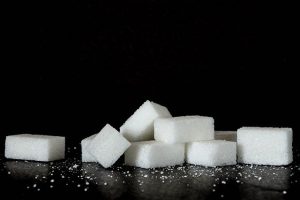If you want to catch up on the first parts of my nutrition in recovery series, start by reading here and here!
Drinking alcoholic beverages takes a toll on your health every time you tip one back, with negative impacts becoming more significant along a continuum from occasional, lighter drinking to frequent, heavier use. No matter where you fall along that line, if you’ve decided to abstain from drinking, the early days of sobriety can be challenging. Mood swings, crankiness, physical pain and aches, and cravings are common during detox – yet you are not powerless over how extreme those effects are. You can ease the discomfort by incorporating nutrition and wellness strategies that provide the balanced fuel your body needs for repair and restoration.
The negative health impacts from excessive alcohol use run a wide gamut. Let’s review some common problem areas that can derail your progress in sobriety, and then we’ll outline the eating solutions that will help you feel better, faster.
Detoxing can be painful. Your food choices can help you feel better, faster.
Malnutrition
Alcohol is really good at promoting malnutrition in habitual drinkers. It damages the walls of the gastro-intestinal tract, potentially leading to abdominal pain, nausea, diarrhea, and vomiting – even when you’re not drinking! Impaired digestion and nutrient absorption are risks for lightweights. Among heavy drinkers, poor digestion of fats and proteins may occur even before there are clinical signs of more serious problems. Poor nutrition due to alcohol causes damage across all systems of the body, and the ex-drinker may notice these things:
- Low energy
- Brain fog
- Depression
- Night blindness
- Muscle loss
- Weight change (including weight gain in odd places and muscle wasting in other areas)
- Lowered immunity
- Poor wound healing
- Overall functional impairment
- Damage to your DNA, (harder to notice because it happens behind the scenes)
Nutrition Solution:
Begin to address the negative effects of poor nutrition by ensuring you’re eating enough and eating regularly. Aiming for 2000 calories a day spread over several small meals, as tolerated by delicate digestive systems in early sobriety, is a good starting place. Those calories help make up for nutritional deficiencies spurred by alcohol abuse, and they provide the energy needed to repair damaged organs and systems. Your body makes the best use of nutrients when you eat every three to four hours.
Pay special attention to getting high-quality proteins and carbohydrates in your diet. Protein is important for healing and rebuilding your muscles, liver, hormones, enzymes, blood and immune cells – it provides the building blocks for all the structures in your body! This includes the vital mood-stabilizing neurotransmitters dopamine and serotonin. You can eat these neurotransmitters in sources such as eggs, tofu and fish at every meal in moderate amounts. Nuts and seeds, which provide healthy fats as well as protein, are convenient double winners at snack time.
Choose complex carbohydrates and whole grains for long-lasting energy, additional protein and a wealth of micronutrients such as folate and the B vitamins, which habitual drinkers may lack. Whole grains also help your body synthesize the that serotonin we’ve already mentioned. Examples of whole grains that many people eat even in the early stages of detoxing include oatmeal, brown rice and comfort foods like baked sweet potatoes.
Eating your veggies is a powerful way to increase micronutrient levels, as they are an ideal source of vitamins and minerals. Choose a rainbow range of coloured produce in order to get the benefits each type offers. If salads are too difficult to digest in the early days of sobriety, a nourishing bowl of soup chock full of vegetables and high-quality protein can do the trick just as well.
High-quality fats, particularly the omega-3 fatty acids available in fish like salmon and in plant-sources such as chia seeds and walnuts, boost absorption of the fat-soluble vitamins A, D, E, and K. Absorbing these vitamins can support recovery from night blindness, as well as overall nutrition status.
Weight issues
Calories from booze may replace other, healthier sources of energy, while physical activity may decrease as we spend more time drinking. Together, these can lead to weight gain. Even casual drinkers may have an increased risk of overweight or obesity due to imbibing – half a bottle of red wine at a dinner out, for instance, delivers approximately 300 calories before you’ve had a bite to eat. Heavier drinkers may be either obese or underweight, given the potential for alcohol intake to reduce appetite. These weight changes depend on overall diet, activity levels, other health conditions, and extent of alcohol intake, while altered metabolism plays a role as well.
Nutrition Solution:
In the beginning stages of detox, simply ensuring ongoing sobriety is the biggest concern for most people. Moving away from the empty calories of alcohol and toward a balanced, moderate, wholesome diet can help normalize any weight changes over time. As your recovery progresses, you can fine-tune these basics, as we’ll discuss in the section on nutrition strategies for long-term recovery.
Sugar
There’s a major culprit in the arena of weight that also has a negative impact on overall emotional sobriety. Sugar! It’s easy to fall prey to the lure of sweet treats when you’re getting sober, but this is a danger zone for many reasons if you have struggled with alcohol dependence. Sugar is increasingly viewed by many researchers as an addictive substance itself, since it can trigger the same neural pathways as alcohol. Reliance on sweets in early recovery can increase the desire to use more at a time when you probably need all the help you can get in calming cravings.
A finer understanding of the mechanisms of both nutrition and neurochemistry in recent years have updated this connection. In fact, some people will be painfully familiar with the use of sugars as a stand-in for booze, because they struggle with food addictions. It’s good to remember that it’s not your fault – studies show having a sweet tooth, possibly due to underlying genetics, may be associated with an increased risk for problem drinking.
Sugar derails sobriety with blood sugar swings and increased cravings.
Nutrition Solution:
Today we know that it’s a better bet for anyone in sobriety to steer clear of the cakes and candies that are sometimes on offer at support group meetings, and to keep them out of the house as much as possible. A balanced diet, low in added sugars, supports stable blood sugar and mood, and is part of a healthy, holistic recovery. Groups like Overeaters Anonymous and professional support from a qualified and non-shaming nutrition coach can be helpful additions to a program of recovery that addresses food addiction.
Eating disorders
Disordered eating, particularly binge eating, is a related risk area for those in recovery. Some research shows up to 72% of women under 30 with alcoholism also experience eating disorders. Disordered eating can happen at the same time as alcohol dependence, or after sobriety is established. While the relationships are not well-understood, it appears that there may be underlying genetic links, neurobiology or impaired impulse control that put individuals at risk for disorders of craving and excessive consumption of substances (whether food, sugar, alcohol, or drugs). Disordered eating can broadly damage to health and well-being, and we should take it seriously.
Nutrition Solution:
Treatment for disordered eating must be nuanced and address multiple risk factors. It’s not just about getting on a particular eating plan (although addressing what, when, where, and why an individual eats, or doesn’t eat, or purges after eating) will all be part of the solution. These are complicated situations from which to find freedom and healing, so consider getting expert and compassionate mental health and nutrition support if this challenges you. Recovery is possible, even when it seems like the struggles are entrenched at so many levels, so don’t give up!
Liver detoxification
Any amount of alcohol exerts a toxic impact on the liver, with heavy drinking associated with alcoholic hepatitis, or alcoholic liver disease. While men tend to be heavier drinkers, women are more susceptible to damage with smaller doses of alcohol.

Liver detoxification is a natural process that healthy bodies perform all the time, but making the right choices to support the process can be confusing due to (mis)information available on the internet and elsewhere. Milk thistle, for instance, is widely marketed as being a natural approach to treating liver problems. But the science does not yet show that it’s reliably effective for liver detox. Another herb that is sometimes mentioned as helping with liver detox is fenugreek. While these herbs don’t appear to cause harm for most users, they also are not magical and may not be worth the investment of time and money. On the other hand, curcumin (from turmeric) and thyme oil supported increased liver detox … in rodent studies. So go ahead and enjoy a tasty meal prepared with flavourful herbs and spices (like turmeric) – just don’t expect it to work a miracle in healing your liver!
Nutrition Solution:
For heavy drinkers, or people diagnosed with liver disease, it’s a good idea to seek out a health care provider who can guide you in the nutritional aspects of healing. Even for those with less significant damage from their drinking, paying attention to detoxification for the liver is a smart move. Many of the basic principles of good nutrition are also the pillars of effective liver cleansing, which your body does naturally once you are no longer pumping it full of toxins. Ensure you’re eating plentiful amounts of fresh fruits and vegetables, which are hydrating and also provide the micronutrients that help your liver heal. Adequate, high-quality protein and carbohydrates also support liver repair, so follow along with the tips in the section on malnutrition above.
Another pro-move is to make water your primary drink, because adequate hydration is crucial for detoxing. There’s no need to count the milliliters of water you chug; drinking enough to have pale, straw-coloured urine throughout the day does the trick.
Eating well supports early recovery.
The early days of abstaining from habitual drinking can be an exciting time of freedom and increased confidence in your own ability to live a fuller life. It can also be an uncomfortable period of experiencing physical and emotional feelings that had been numbed by habitual alcohol use. While these challenges are real for many who are newly clean, so are the opportunities to help yourself recover by adopting a truly holistic approach. You can make food choices to help ease some of the pain points in early sobriety by providing your body and brain with the tools needed to heal. These eating solutions can help you feel better, faster, while you move toward holistic recovery and longer-term sobriety.

| Lulu Cook, APD/RDN, CPC
Dietitian and Counsellor |









2 Comments
Thank you
Very helpful since all my meetings are cancelled due to the coronavirus